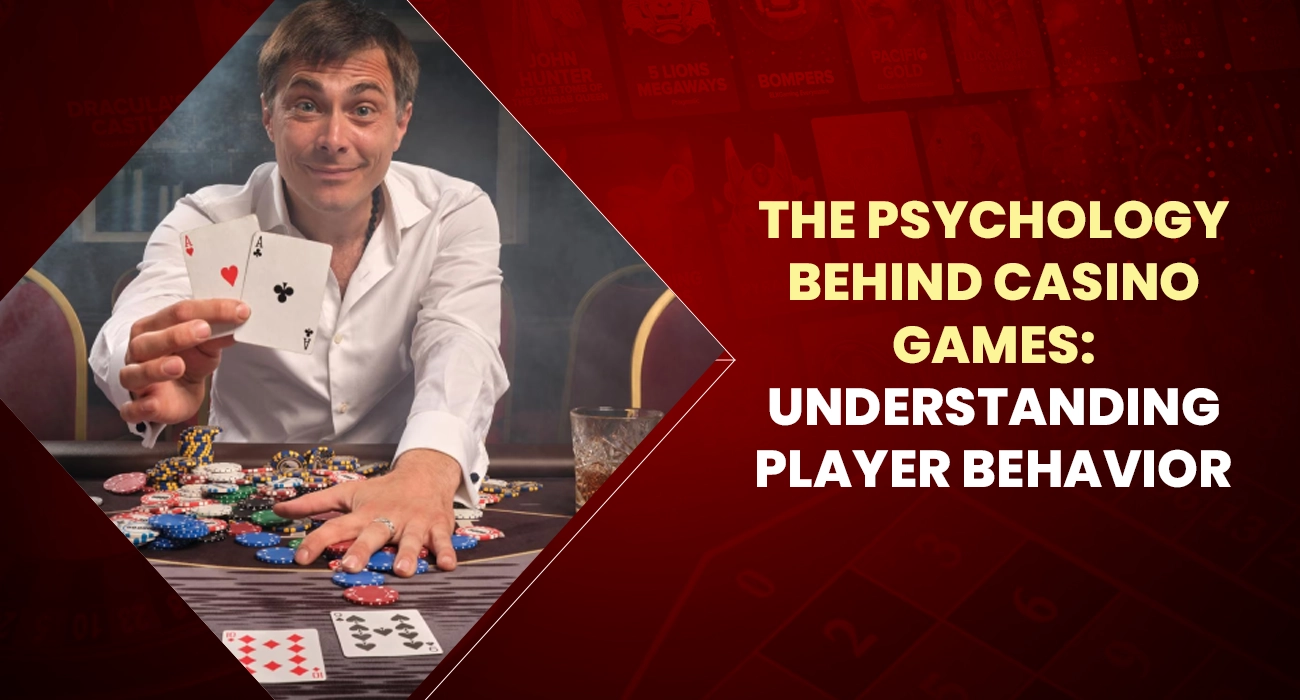The Psychology Behind Casino Games: Understanding Player Behavior
Casinos are carefully constructed settings meant to enthrall players in ways that go beyond pure chance. The allure of casino games transcends into psychology, which is a potent factor in drawing in and keeping players. This investigation reveals the subtle elements that influence player behavior and decision-making while shedding light on the complexities of casino game psychology. Players are drawn into an immersive experience by the intricate design, which combines sensory stimulation and the appearance of control. The combination of psychology and chance generates a fascinating attraction. Knowing this dynamic interaction helps explain why casinos are such interesting and captivating places.
Sensory Stimulation and Immersive Environments:
Casinos are made to be immersive experiences that appeal to various senses. Flashing lights, vivid colors, and a steady buzz of activity create a captivating atmosphere. This stimulation of the senses increases arousal and enthusiasm, which affects how the game is perceived overall.
Sound and Music: Creating Emotional Resonance:
The sounds found in casinos, such as the jingling of money, the whirling of slot machines, and lively music, are deliberately chosen to arouse particular feelings. The purposeful attention-grabbing and gratifying nature of winning noises enhances the positive reinforcement of winning gameplay. On the other hand, to lessen unpleasant feelings, losses could be accompanied by less noticeable noises.
Variable Reward Schedules: The Thrill of Uncertainty:
In casino games, using varied reward schedules is a potent psychological tactic. For example, Random Number Generators (RNGs) are used in slot machines to guarantee unpredictable results. Players remain involved because of the suspense created by the sporadic reinforcement of victories and the unexpected nature of prizes, which heighten the excitement of every spin.
The Gambler’s Fallacy: Misunderstanding Randomness:
The Gambler’s Fallacy is a cognitive bias in which participants in games of chance think that previous results will affect how things turn out. For instance, some players can mistakenly believe that a win is inevitable following a run of losses. Comprehending and surmounting this misconception is essential for making well-informed decisions since every spin or hand operates independently of previous results.
Illusion of Control: Player Agency in Decision-Making:
Players in casino games frequently have options, even if those options barely affect the final result. Players experience a greater sense of agency and immersion in the gameplay due to this control illusion. Prolonged participation is facilitated by the psychological satisfaction that comes from making decisions, even if they are small ones.
Social Contact and the Influence of Peers:
Since casinos are social settings, people’s behavior might be influenced by their presence. In a group environment, the thrill of victory is frequently amplified, resulting in a beneficial social reinforcement cycle. Furthermore, seeing other people succeed could inspire players to continue after comparable accomplishments.
Cognitive Biases: Availability and Anchoring Heuristic
Decision-making can be impacted by cognitive biases, including the availability heuristic, which overestimates the significance of information that is easily accessible, and anchoring, which depends excessively on the first piece of information encountered. Casino designers exploit these biases to affect players’ perceptions of their chances of winning and the allure of particular games.
The psychology of casino games is a complicated mix of sensory inputs, cognitive biases, and the allure of uncertainty. Players need to understand these psychological aspects in order to participate properly and make educated decisions. Through awareness of the variables impacting player conduct, people can enjoy themselves in casinos without sacrificing a responsible gaming strategy. A better grasp of player psychology is becoming more and more important as the casino business develops in order to promote an equitable and fun gaming environment. This realisation is especially pertinent in light of recent developments such as the Live Casino App Download, which demonstrate the evolving nature of player interactions with casino games.
Also read: Mobile Keno: A Fun and Fast-Paced Lottery Game (khelraja.live)






